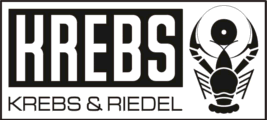Tech Talk

What are the “Differences between Resin, Metal, Vitrified and Electroplated Wheel Bonds”?
Resin Bond.Diamond – Resin bonds are preferred on most carbide grinding applications. Typical grinding operations would be tool and cutter, surface, O.D., I.D., and blanchard. These wheels can be used both wet and dry. CBN – High speed and die grade steels can be ground more efficiently with resin bond CBN wheels than with conventional abrasive wheels. These superabrasive wheels have gained wide acceptance in the tool room, and are also being used in many production grinding applications. Likewise, these wheels can be used both wet and dry.
Metal Bond.The primary use of metal bond diamond wheels is to grind glass and ceramics. Typical applications would be glass edging, glass beveling, surface grinding and blanchard grinding. These bonds are always used wet. Metal CBN wheels are only used to grind hard alloy steels in the most severe applications, and should always be used wet.
Vitrified Bond. These wheels are used extensively in the manufacturing of carbide round tools and polycrystalline diamond tools. Typical applications would be plunge grinding or carbide circuit board drills, O.D. grinding of carbide rounds, roughing carbide burrs and peripheral grinding of PCD flat tools. These wheels are used both wet and dry. Vitrified CBN wheels are the most economical method of production grinding many alloys. Typical applications would be I.D., O.D., creep feed and double disc. Depending on the operation, these wheels can be used both wet and dry.
Electroplated. Diamond plated wheels consist of a single layer of diamond plating over a machined steel core. These wheels are excellent for close tolerance form grinding of carbide, ceramics and glass. The also do a superb job of grinding fiberglass and composite materials. Diamond plated wheels can be used both wet and dry. CBN plated wheels consist of a single layer of CBN plating over a machined steel core. These wheels are superb for close tolerance form grinding of hard and exotic alloys. Coolant is recommended, but not always necessary.